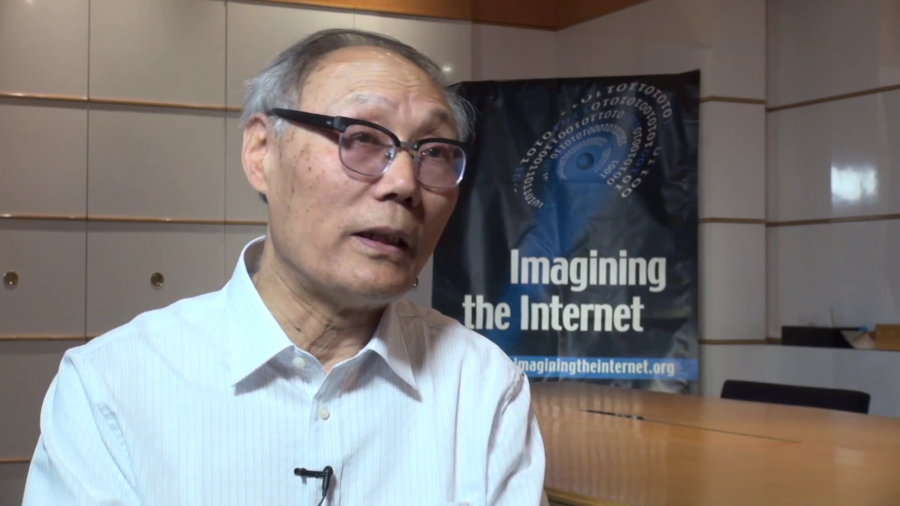Hualin Qian: Yeah, my part for the global Internet is very little. [laughs] Only introducing the Internet to China. We had finished our first Internet connection to the United States in 1994. That brought China to the Internet.
Intertitle: Describe one of the breakthrough moments of the Internet in which you have been a key participant?
Qian: In my country, I headed a team working on the Internet. But for the world, I didn’t do much. The only thing I did is the internationalized domain names, that’s not only beneficial for China but also for many other countries, especially non-English speaking countries. That’s also good for them. We had quite a lot of research and activities in China on that, working with China, Japan, Korea, and then with other people on that.
Intertitle: Describe the state of the Internet today with a weather analogy and explain why.
Qian: Yeah, it’s looking sunny. I think it’s good. Up to now it’s still good. Although there are quite a lot of challenges, but people have to deal with those challenges.
Intertitle: What are your greatest hopes and fears for the future of the Internet?
Qian: For the future of the Internet I think we have to solve two problems. One is improve its architecture. The second is improve the security. The architecture is not very nice for the Internet. People are working on that. Many projects like in the States, GINI, a software-designed network, and OpenFlow. Those technologies are trying to improve the quality of the architecture, the topology. Essentially it’s switching or routing. The old Internet is based on the routing system. Switching is locally-used. But many efforts have been made to strengthen the switching system, the switching part of the net, to reduce the effect of the routing part. For example [NPS?], SDN, those things try to use switching to replace part of the routing. So in my opinion, all the trouble is coming from the routing system. Because of the routing we cannot control the quality of the service. The delay and packet loss cannot easily be controlled.
And the second thing is the security issue. More and more people’s daily life relies on the Internet. Especially the financial— They use e-banks, they use ecommerce, and those things. The paying systems are not very safe because at many many points, you can steal the information from end users. Especially mobile phones be connected to the Internet and doing payments, then maybe the message can more easily stolen by some other people. Because in China, there are many forged base stations. So they can collect the signal from every mobile phone. Of course many computers may be ruined by other people, controlled by other people. That’s very dangerous. These issues should be improved in the future.
Intertitle: What action should be taken to ensure the best possible future?
Qian: Now I don’t think we have good solutions to the two parts I just worried about—architecture, and security. We don’t have good ideal solutions up till now. Many people are doing research projects all over the world. But none of them are ideal. And even when they have some solution, there’s still a big obstacle because the deployment is very difficult. People are using the Internet every day. To have a big change to the network, may affect people’s daily life. So that’s very difficult to do. And of course the same thing in the security issue. People cannot absolutely make a safe systems. It cannot be done.
